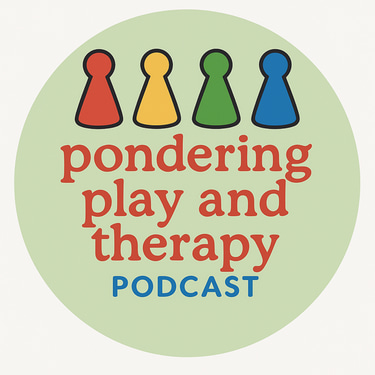Balancing Education Practices: Structured Learning vs Free Play
In this week’s episode of Pondering Play and Therapy, I was joined by Charlotte Booth, the founder of Leek Play Hub and an experienced educator who has worked across classrooms, universities, and now early years settings. Our conversation explored the tensions and possibilities between structured learning and the freedom of play—a theme that feels especially relevant for parents, carers, and teachers navigating today’s educational landscape.
Philippa with AI Assistance
10/17/20252 min read


From Lecturing to Floor Play
Charlotte shared her fascinating career journey, moving from a decade as a senior lecturer in teacher education at Manchester Metropolitan University back into the classroom—quite literally onto the nursery floor. For her, it was a conscious decision to return to the roots of practice, to work directly with children and keep her perspective grounded.
This shift highlights something many of us recognise: education isn’t static. It evolves, influenced by policy changes, school priorities, and broader cultural expectations. Yet at the heart of it, the question remains—how do children learn best?
The Pressure of Structure
One of the challenges Charlotte discussed is the increasing structure in schools. While early years education is designed to be play-centred, this quickly narrows as children move into Key Stage 1 and beyond. Pressures from Ofsted, targets, and timetables often leave little room for open-ended exploration.
Teachers themselves may want to embed play, creativity, and curiosity into lessons, but the system doesn’t always allow it. As Charlotte explained, new teachers often lose the reflective, research-informed practice they developed during training as they adapt to established school cultures.
Why Play Still Matters
Despite these pressures, play remains a vital part of how children learn—not just in nursery but well into primary years. Play encourages problem-solving, communication, emotional regulation, and imagination. Charlotte has always been an advocate for role play and hands-on exploration in classrooms, and she’s seen firsthand how children’s development can be affected when this isn’t available.
We also touched on how children’s play has changed in recent years. The influence of screens, changes in family life, and even shifts in nursery environments mean many children are entering school with different needs and experiences. Supporting language, attention, and social interaction has become an increasing priority.
Creating Spaces for Connection
Alongside her work in nursery, Charlotte founded the Leek Play Hub—a community space designed to give children and their big people (parents, grandparents, carers) the opportunity to play together. Unlike soft play or structured drop-off clubs, the Hub encourages shared imaginative play, co-regulation, and connection.
What struck me most was the way Charlotte described the Hub as a place where adults rediscover their own ability to play—whether that’s stepping into a role play café, building towers, or simply getting lost in the world of their child’s imagination. For many families, this is as transformative as it is fun.
Finding the Balance
The theme that runs throughout this episode is balance:
Balancing structure and outcomes with creativity and exploration.
Balancing the needs of the system with the individuality of children.
Balancing opportunities for adults and children to learn, connect, and grow together.
Play isn’t just an “extra” to be added on after the “real” learning is done. It is the learning. And as Charlotte reminds us, whether in nurseries, schools, or community hubs, keeping play alive is essential for both children’s development and for the joy of learning itself.
👉 If you’re local to Staffordshire (or visiting the Peak District), you can find out more about the Leek Play Hub at leekplayhub.co.uk or on their Facebook page.
🎧 Listen to the full episode here: Ep41 Balancing Education Practices: Structured Learning vs Play
